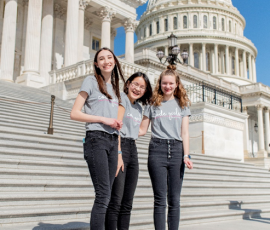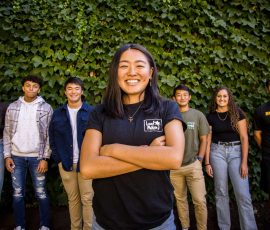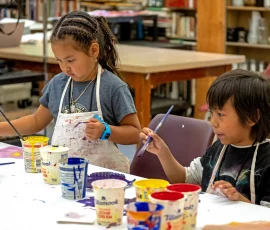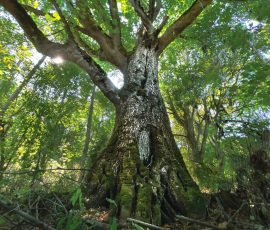This fall, we mark the 30th annual Murdock College Science Research Conference. In honor of this milestone, we have taken an opportunity to hear from some faculty members who have participated in the conference for several years and hear why they believe this event is so valuable to our local institutions and students.
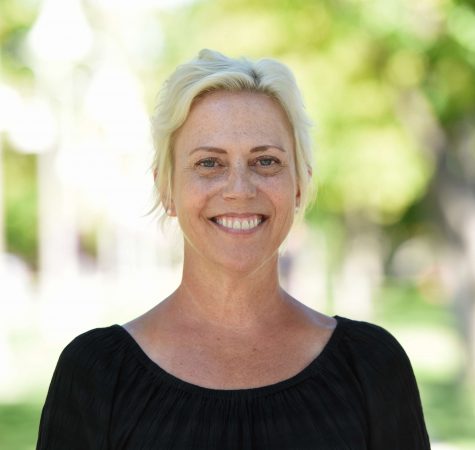
Few things are as energizing to Dr. Sara Heggland as watching her students at work in the lab.
“Time in the classroom is important, but there is something unique and inspiring about watching students tackle challenges in the lab,” said Heggland in a recent conversation with the Murdock Trust. “It’s not like following a recipe in a cookbook. They may start an experiment and three steps in run into a challenge that they must examine and troubleshoot. It activates their critical thinking and their imagination at the same time. And when they have a breakthrough, they feel ownership of that success. It is really exciting to watch.”
For twenty years, Dr. Heggland has helped shape future scientists at The College of Idaho. She touts the school’s increased investment in resources to provide hands on training to students as one of the reasons the program has flourished. In addition, Dr. Heggland says the Murdock College Science Research Conference has been a critical element in drawing more students to the sciences.
“Science is a community,” she explains. “The MCSR Conference helps bring students from a variety of backgrounds into that community. The expansive network of participating schools makes it possible for students to foster connections beyond their own institution. What’s more, the energy and approach of the conference is incredibly positive and supportive. Students who might feel intimidated to pursue a career in this field have a safe, welcoming environment to help build their confidence and excitement for a future in the STEM fields.”
Since her first conference in 2004, Dr. Heggland has seen this approach help expand access to the sciences in positive ways.
“The growth of participation has really been incredible,” she says. “The Murdock Trust has been very intentional about the speakers and faculty involved in the event. When students see keynote lectures from female researchers and people of color, they begin to see a future for themselves in the field. This emphasis by the Trust is why attendance through the years has been so diverse.”
Dr. Heggland adds that the conference is not just about inspiration. Students gain a wide variety of practical skills through their participation at the MCSR Conference such as professional writing and presentation skills, both qualities that are critical to building a successful career in the sciences.
“Our goal is not just to teach students about biology. We want to teach them to BE biologists. There’s a lot more that goes into being a scientist than just examining data. Opportunities like MCSR help provide that holistic approach that gives students the best opportunity possible to thrive.”


